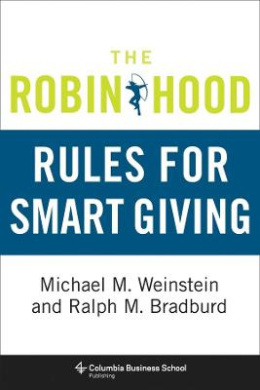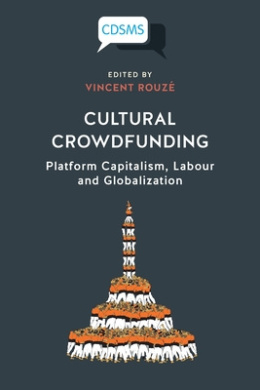Description
The Robin Hood Foundation is a charitable organization focused on alleviating problems caused by poverty in New York City. Weinstein and Bradburd worked to develop a metric-based approach called “relentless monetization,” which made sure the money they took in and granted out was used effectively and resulted in long-term change. In this book, Weinstein and Bradburd describe their method, explaining how to measure, track, and present a project so as to realize its full potential. They share examples from the Foundation’s own experience with relentless monetization, opening the books on the obscure dynamics of a large grant-giving organization. The authors also show other nonprofit organizations how to implement their approach within their own fundraising and grant-giving strategies, and they discuss the best way to guarantee success in a variety of philanthropic endeavors. Drawing on their vast knowledge, the authors devote specific chapters to the difference between beneficial and detrimental philanthropic practices and their outcomes and provide targeted advice for funding “smart” nonprofit programs. Michael M. Weinstein is the senior vice president of the Robin Hood Foundation and holds a Ph.D. in economics from the Massachusetts Institute of Technology. He analyzed economic issues for NPR before joining the New York Times, becoming a member of its editorial board and its economic columnist in the 1990s. Ralph M. Bradburd is professor of economics and the David A. Wells Professor of Political Economy at Williams College. He has consulted for international organizations such as the World Bank and USAID, U.S. government agencies such as HHS and the Office of Technology Assessment, and the philanthropic nonprofit Robin Hood Foundation. He was also a visiting research scholar at the Federal Trade Commission and an expert witness for antitrust authorities in the United States. Preface 1. Overview of Relentless Monetization 2. Translating Mission Into Mission-Relevant Outcomes 3. Basics of Monetizing Outcomes 4. Those Pesky Counterfactuals 5. The Meaning of Present Discounted Values 6. Examples of Metrics by Outcome 7. Examples of Metrics by Grant: Multi-Outcome Interventions 8. Completing the Analytical Traverse: Small-Bore Benefit/Cost Analysis 9. Key Generalities: Q&A 10. Six Purposes 11. Prominent Metrics Systems 12. Reflections on Risk 13. Conclusion Appendix A: Counterfactual Complications: Shared Responsibility Appendix B: Choices Between More and Less Risky Initiatives Appendix C: Calculating a Program’s Expected Well-being Impact Notes Index






